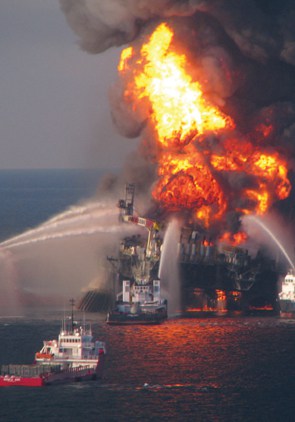I have liked James Lovelock ever since I heard about his Gaia Hypothesis in the brilliant English political drama, Edge of Darkness. I am not happy with all of his intellectual positions. I baulk at nuclear power from the unique Australian position of being nuclear-free but still exporting uranium. But as I finish reading the latest biography of him, I am starting to realise what I have learned.
Category: petroleum
Industrial Manslaughter and marketing
Industrial Manslaughter was always going to generate some workplace safety marketing at some point. In this week’s Australian Financial Review (23 September 2022, page 23, paywalled), Inspectivity paid for a full-page advertorial promoting its data collection and analysis products. It mentioned that its products could help to reduce the risk of being prosecuted for Industrial Manslaughter. But what does this say about one’s customers and their attitude to providing safe and healthy workplaces if the avoidance of personal accountability is the ”hook” for the sale?
Latest Andrew Hopkins book focusses on engineering decisions
 The latest Andrew Hopkins book steers clear of analysing corporate leadership, and this is a good thing. Australian National University sociologist, Andrew Hopkins, has established an international reputation for his enlightening analyses of the failures of organisational culture in major disasters but his latest book, Disastrous Decisions: The Human and Organisational Causes of the Gulf of Mexico Blowout, purposely leaves leadership out.
The latest Andrew Hopkins book steers clear of analysing corporate leadership, and this is a good thing. Australian National University sociologist, Andrew Hopkins, has established an international reputation for his enlightening analyses of the failures of organisational culture in major disasters but his latest book, Disastrous Decisions: The Human and Organisational Causes of the Gulf of Mexico Blowout, purposely leaves leadership out.
This may disappoint many but Hopkins says that
“The critical role of top leaders in accident prevention cannot, however, be overstated. It is they who must learn from major accidents and, unless they do, nothing can be expected to change.
There is one group of decision-makers that has received rather less attention in accident investigations: office-based engineers.” (page 8) Continue reading “Latest Andrew Hopkins book focusses on engineering decisions”
Transocean executives gain safety bonuses
News that Transocean are awarding their executives substantial safety bonuses has the internet aflame with outrage. Certainly it seems hard to justify the bonuses given after the death of 11 workers and the damage to the local environment, economy and community but the action will also affect safety management.
Safety management is increasingly relying on statistics to identify performance levels. Transocean’s actions illustrate that some statistics bear little relation to reality or, at least, the real-world context of its operations.
AFP quotes Transocean as reporting to the US Securities and Exchange Commission that:
“Notwithstanding the tragic loss of life in the Gulf of Mexico, we achieved an exemplary statistical safety record as measured by our total recordable incident rate and total potential severity rate” Continue reading “Transocean executives gain safety bonuses”
Useful safety information from the US
One always has to be careful about information released on April Fools’ Day but in 2011 an important pieces of safety information from the United States was released – a video message from the Chemical Safety Board (CSB). A reader also pointed to a set of OHS case studies from the University of Massachusetts Lowell (UMASS) released in January.
Twelve months after the Tesoro Refinery fire in Washington in which seven people died, CSB is continuing its investigation but has released a video message, by Chairperson Rafael Moure-Eraso, that is confronting and displays the exasperation of safety regulators.
Is capitalism anti-safety? Systemic failures in oil industry
 The Wall Street Journal and other media around the world have reported on systemic failures of the global oil industry and government regulators identified by the National Commission on the BP Deepwater Horizon Oil Spill and Offshore Drilling. These articles are based on the release of a single chapter, Chapter 4, of the final report due for release on 11 January 2011.
The Wall Street Journal and other media around the world have reported on systemic failures of the global oil industry and government regulators identified by the National Commission on the BP Deepwater Horizon Oil Spill and Offshore Drilling. These articles are based on the release of a single chapter, Chapter 4, of the final report due for release on 11 January 2011.
A media release from the Commission includes the following findings from Chapter 4
“The well blew out because a number of separate risk factors, oversights, and outright mistakes combined to overwhelm the safeguards meant to prevent just such an event from happening. But most of the mistakes and oversights at Macondo can be traced back to a single overarching failure—a failure of management. Better management by BP, Halliburton, and Transocean would almost certainly have prevented the blowout by improving the ability of individuals involved to identify the risks they faced, and to properly evaluate, communicate, and address them.”
“. . .the Macondo blowout was the product of several individual missteps and oversights by BP, Halliburton, and Transocean, which government regulators lacked the authority, the necessary resources, and the technical expertise to prevent.”
“The blowout was not the product of a series of aberrational decisions made by rogue industry or government officials that could not have been anticipated or expected to occur again. Rather, the root causes are systemic and, absent significant reform in both industry practices and government policies, might well recur.”
“What we. . .know is considerable and significant:
- each of the mistakes made on the rig and onshore by industry and government increased the risk of a well blowout;
- the cumulative risk that resulted from these decisions and actions was both unreasonably large and avoidable; and
- the risk of a catastrophic blowout was ultimately realized on April 20 and several of the mistakes were contributing causes of the blowout.”
Analysis of Montara oil spill reports begins
Legal analysis of the Montara oil spill inquiry reports have started to emerge. One of the first is by Allens Arthur Robinson (AAR). It does not discuss safety specifically but in many people’s minds Montara was not an occupational safety disaster as no one was injured. To many the explosion has far more relevance as an environmental or process safety matter but considerable benefit can be gained by realising the Montara oil disaster was a substantial near-miss.
AAR looks at broader impacts of the Australian government’s response to the disaster. AAR states that “we can expect to see moves by the Federal Government towards establishing a national regulator.” Why should such a move only apply to offshore petroleum exploration? If there is considerable administrative and regulatory advantages in a single petroleum exploration regulator, why not apply the same approach to the regulation of workplace safety? Continue reading “Analysis of Montara oil spill reports begins”

